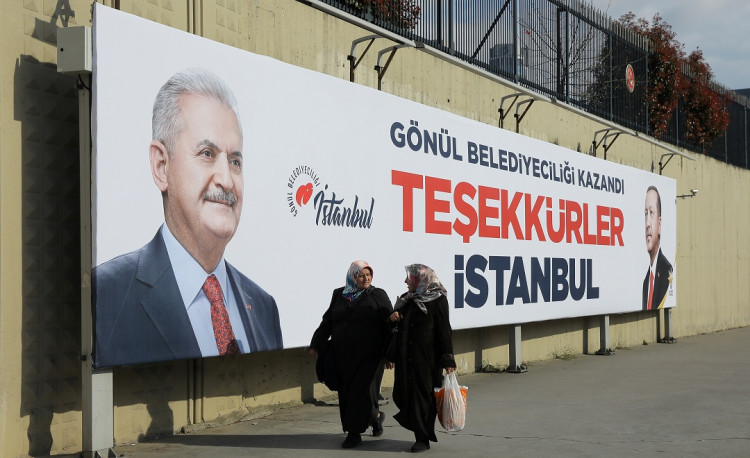The ongoing political uncertainty in Turkey's municipal elections has now adversely affected the country's economy, further dragging it down amidst worsening economic conditions. The country's BIST 100 stock index fell by as much as 1.65 percent at the European markets, a tumble that was preceded by a 7 percent drop last week. The Turkish lira also took a hit at the start of the week, trading at around US$5.6913. The currency fortunately recovered somewhat as the dust settled, trading at around US$5.5212.
The fluctuations were mainly caused by the recent string of pivotal losses of Turkish President Recep Tayyip Erdogan's political party, the Justice and Development Party (AK Party). The president's party lost in the capital of Ankara and it is expected to lose in the country's commercial hub of Istanbul. The AK Party has held power in both cities for the past 25 years, but it looks like it is about to be dethroned in this year's voting. The municipal election results are seen by most as a direct referendum on the president and his administration.
The AK Party's main opponent, the Republican People's Party (CHP), has already declared its victory in some parts of the country. However, the AK Party's far-right partner, the Nationalist Movement Party (MHP) still has a chance given that it has reportedly secured more than 50 percent of the national vote.
Fears of a political shift in the last few months have caused a lot of uncertainty in both the country's currency and its stock index. Businesses, financial services, and investor confidence have also faltered in recent months. Voters have been losing confidence in the president's party, with most citing a failure in enacting policies to remedy the country's economic condition. Turkey fell into a recession last year, with unemployment and inflation hitting record numbers. Unemployment last year was pegged at 13 percent, the highest number in over a decade. Inflation also hit 19.7 in February.
The drop in the country's currency has resulted in diminished consumer purchasing power and major issues for banks and business with foreign debt. According to reports, the country's foreign-currency denominated corporate debt is currently standing at around 50 percent of its GDP.
Edrogan had previously transformed Turkey's economy in the early 2000s, thanks to his policies that brought in more foreign investments. The policies also brought about millions of new jobs. In recent years, this had apparently changed due to the leader's new populist and nationalist views. This had also resulted in a rift with the administration and its Western allies.






